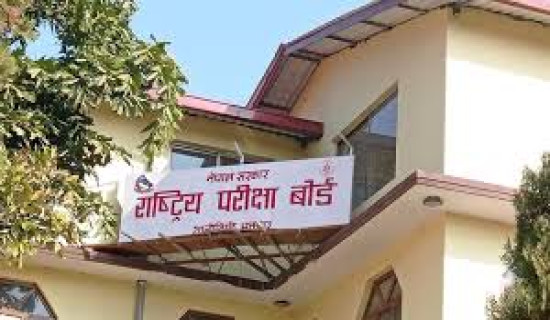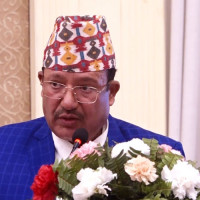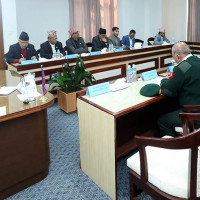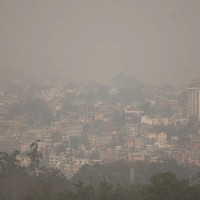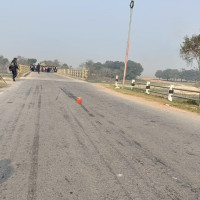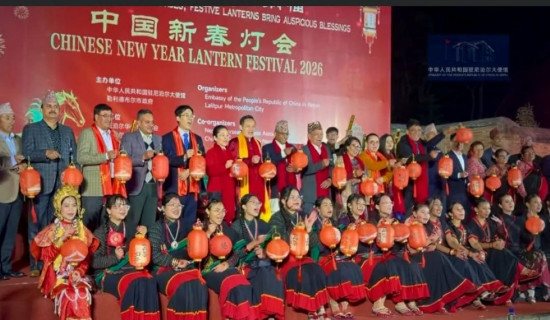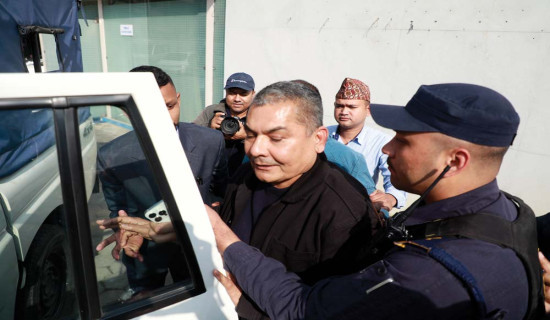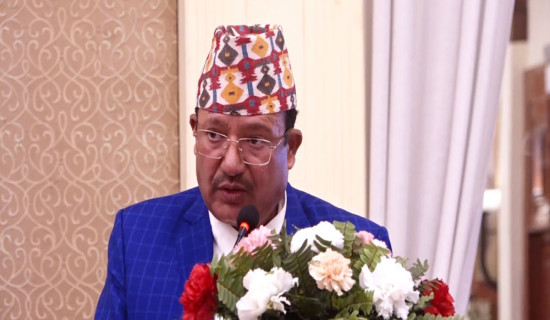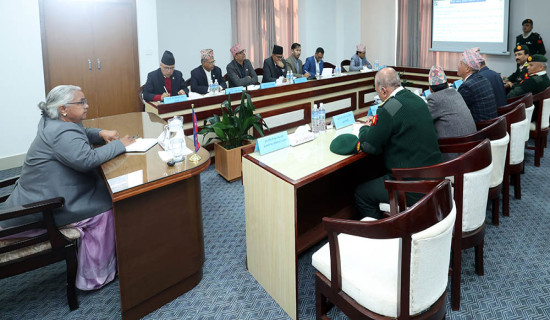- Wednesday, 18 February 2026
Millions Are Denied Voting Rights
Nepal is a federal democratic republic, yet millions of its people are still deprived of the very first right in a democracy - the right to vote. Nepal first practiced voting in 1959 with its first democratic election. In the 2022 general election, 17.99 million people were registered to vote in Nepal. Out of them, approximately 11.13 million exercised their voting rights, resulting in a voter turnout of 61.85 per cent. However, around 6.86 million registered voters did not cast their vote, highlighting a significant portion of the population whose voices went unheard. Democracy can truly flourish only when the majority of citizens actively participate in the voting process.
According to Article 84 (1) of the Constitution of Nepal, "Every citizen of Nepal shall have the right to vote in the election of members of the Federal Parliament." Despite this constitutional guarantee, most of the Nepali citizens, especially those who live or work away from their permanent residence, are excluded from voting.
Exclusion
More than 8 million Nepalis reside abroad (excluding those in India), a majority of whom are migrant workers who remit billions to the national economy. They are, however, citizens and do not have voting rights while overseas. Nepal lacks exact data on the number of Nepalis working in India due to the open border and the lack of formal documentation. Most credible estimates suggest 2 to 4 million Nepalis work in India. Migration is mostly informal, seasonal, and unrecorded, making accurate tracking difficult.
Nepal's security, administrative, and educational systems rely on a vital support system maintained by Nepal's essential workers. There are approximately 80,000 in the Nepal Police, ensuring law and order and public security across the nation. The Nepal Army consists of roughly 95,000 troops tasked with national defence and disaster response to natural events. Supporting the administrative and governmental functions, there are approximately 85,500 bureaucrats employed across various government departments. In addition, the education sector is served by approximately 280,000 teachers who work in public schools and educate children and contribute toward human capital development.
All these groups are generally not in a position to shift to their home constituencies at election time due to their working schedules. Moreover, they are also deprived of their vote. In 2018, Nepal's Supreme Court directed the government to grant voting rights to migrant workers living abroad. But seven years have passed since then, and the state has done nothing tangible. Inaction in this case is the lack of political will and not the feasibility of logistics. India, the USA, France, and Australia, among others, have had in place mechanisms such as voting at embassies or consulates, postal ballots and secure online voting systems, which ensure that everyone, wherever they are, has a stake in the democratic process. Why can't Nepal do so?
The most likely reason for the inaction is political calculus. Migrant workers and independent professionals tend to be progressives for development. Their introduction to the electoral landscape would break old party machines' monopoly, elevate the status of alternative and independent candidates, and create accountability and good governance pressure as a by-product. Such a shift presents a risk to the entrenched elites that benefit from the status quo and, therefore, defend against changes that allow for greater full participation.
Whenever that number of citizens is disenfranchised, Nepal cannot be termed to have an entire democracy. Elections thereby only reflect those physically present and not the nation at large. This differential participation undermines democratic values and leads to policies that ignore the voices of the very same people who are adding to the nation through remittances, teaching, security services, and civil administration.
Nepal must take decisive action to give all eligible citizens the ability to vote, regardless of their location or line of work, to create an inclusive democracy. This includes allowing duty-work public servants to cast their ballots on-site, providing voting booths at diplomatic missions and embassies, and providing postal or electronic voting services to citizens living abroad. Furthermore, to create efficient and easily accessible voting systems, cooperation with the Non-Resident Nepali Association and diaspora communities is crucial. Nepal's democracy will remain unfinished until those changes are made, not because of a lack of resources or technology, but rather because of a lack of political will and bravery.
We often complain that our elections continue to elect the same old leaders who make empty promises and fall short of delivering tangible change. However, we must first ask a basic question before blaming political parties or candidates: Do all eligible citizens even have the opportunity to vote? In reality, a significant portion of the population is excluded from the voting process. This includes millions of Nepalis working or living abroad, as well as many essential workers such as police, army personnel, and others.
Public will
Imagine the difference it could make if these voices were included. Migrant workers, for instance, have seen the world and may hold more progressive, development-oriented views. Essential workers, who witness the shortcomings of governance first-hand, could demand more accountability and practical change. When half the population is effectively disenfranchised, we’re not seeing the full picture of public will. The election result is then shaped only by those who can participate, often the same groups that have historically upheld the status quo.
So, instead of just blaming the system for repeating faces and failed promises, we should also focus on the structural barriers that prevent full participation. Only when every citizen, regardless of where they live or work, is allowed and enabled to vote, can we expect truly representative outcomes and perhaps the change we all keep hoping for.
(The author is a lecturer and IT consultant. info@dipakjoshi.com.np)



